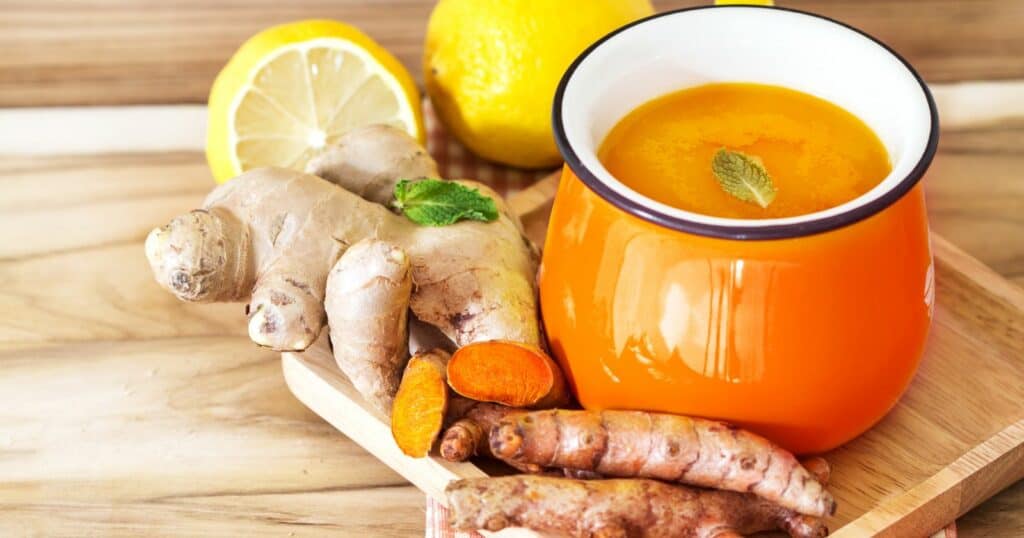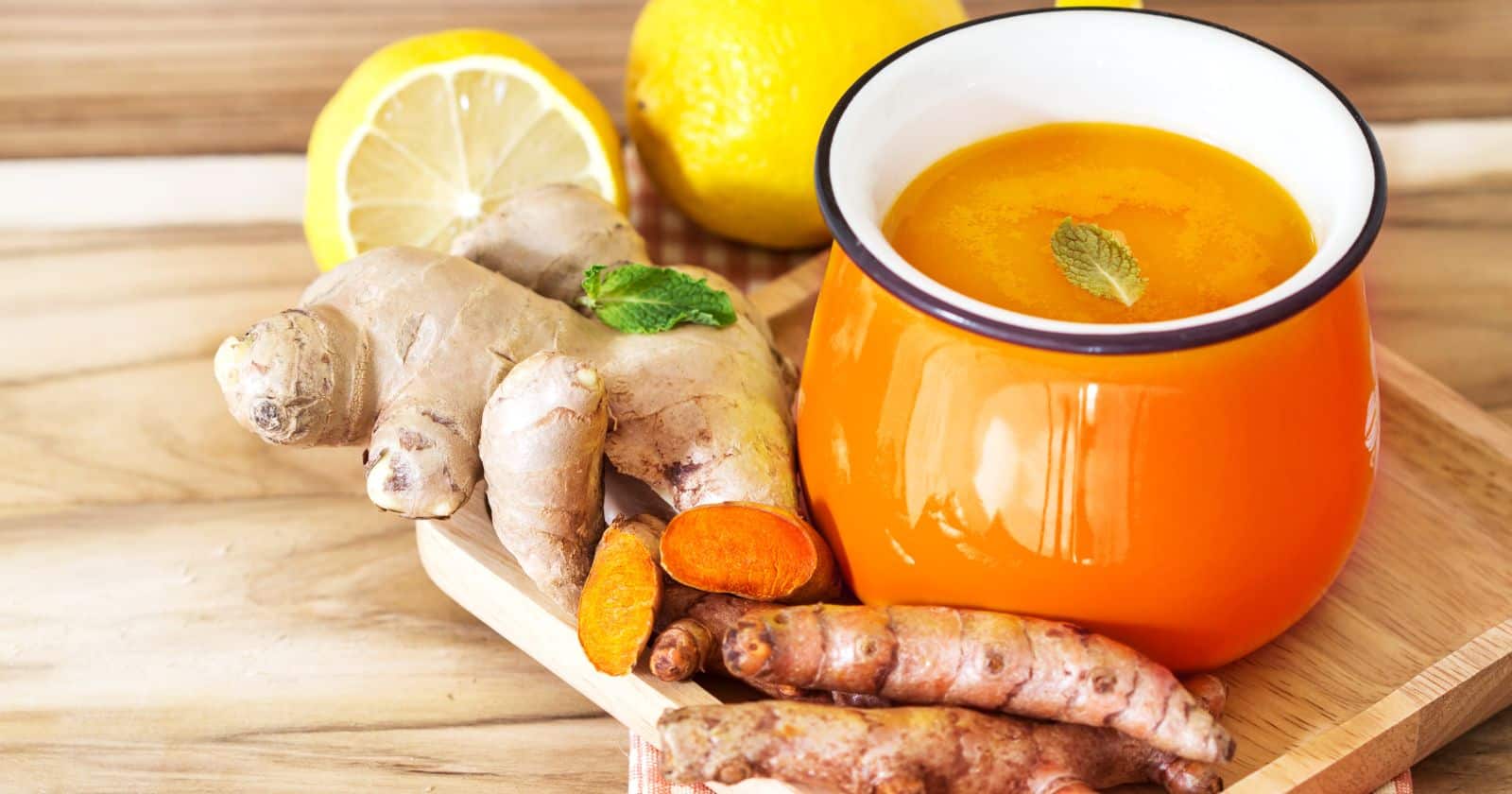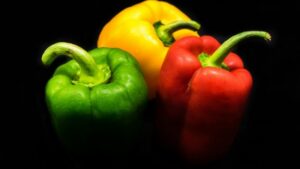That spicy kick in your ginger tea – friend or foe? For some, ginger’s heat is an invigorating blessing, while for others, an overwhelming curse. But one thing’s certain: Spiciness is innate to ginger’s very nature.
Ginger contains special compounds like gingerols and shogaols that stimulate receptors in the mouth, creating a peppery, spicy sensation. So yes, ginger tea is inherently spicy thanks to these fiery molecules.
But the level of
While some may seek to dilute ginger’s
Balancing ginger’s complexity allows both
So don’t run from ginger tea’s signature burn. Embrace its nuances – from subtle sweetness to fiery heat – as you discover its soothing, restorative potential one sip at a time.
What Makes Ginger Tea Spicy?

That fiery flavor of ginger comes from its natural chemical compounds, specifically:
- Gingerols – Pungent oils that give ginger its peppery bite. They stimulate nerve endings in the mouth that sense spiciness.
- Shogaols – Formed when ginger is dried or cooked. Even more potent than gingerols!
- Zingerone – Produced by cooking ginger. Adds a spicy-sweet aroma.
These compounds activate receptors in the mouth and throat that perceive irritation and heat. More ginger = more of these spicy molecules released.
But ginger’s level of
- Fresh ginger – Milder, used for more control over heat.
- Dried, ground ginger – Very concentrated, imparts intense spiciness.
- Length of steeping – Longer steeping extracts more
spice compounds.
Health Benefits of Ginger Tea
Beyond its bracing flavor, ginger and ginger tea offer science-backed health benefits:
- Reduces nausea – Soothes motion sickness, morning sickness, and post-surgery nausea.
- Eases arthritis pain – Anti-inflammatory properties reduce joint inflammation.
- Boosts immunity – Antioxidants support immune function and fight infection.
- Improves digestion – Stimulates enzyme secretion to aid digestion and reduce bloating.
- Increases circulation – Warms the body, dilates blood vessels, improves blood flow.
- Protects the brain – Anti-inflammatory effects may boost cognition and memory.
- Fights cancer – Compounds may inhibit growth and development of cancer cells.
Of course, consult your doctor before using ginger tea as a remedy. But
Adjusting Ginger Tea to Your Taste Buds
Ginger tea can be tailored to your preferences—whether you savor the
For Milder Ginger Tea:
- Use less ginger – Start with a 1/4 to 1/2 inch piece.
- Quickly strain out ginger chunks.
- Steep for a shorter time – 2-3 minutes.
- Add lemon juice or sweeteners to balance.
- Dilute with hot water if too intense.
For Spicier Ginger Tea:
- Use more ginger – Up to 1-2 inch pieces.
- Grate ginger into fine pieces to extract more flavor.
- Let ginger remain in tea as it steeps.
- Steep for longer, 5-10 minutes.
- Add spicy enhancers like black pepper, turmeric, or cayenne.
For Maximum Ginger Flavor:
- Use dried ground ginger – More concentrated
spice . - Simmer sliced ginger in water for 10+ minutes before steeping tea.
- Finish with a splash of ginger syrup.
- Select spicy ginger tea blends with extra ginger content.
Play with different forms of ginger and steeping methods until your ginger tea hits the ideal harmony of flavor,
How to Tone Down Ginger Flavor
For those who find ginger too spicy or intense, there are several methods to mellow out its punchy flavor:
- Use younger ginger – Fresh, young ginger has milder flavor vs. mature ginger. Look for smooth, thin skin.
- Peel the ginger – Removing the skin tones down flavor, since the skin contains the most intense oils.
- Quickly blanch ginger – Boiling ginger for 1 minute helps reduce its spiciness.
- Slice thinly or grate – More surface area = quicker dissipation of strong oils during cooking.
- Sauté briefly – Cooking ginger briefly mellows its raw bite. Don’t let it burn.
- Combine with sweeter ingredients – Honey, sugar, fruits will counter pungent notes.
- Add an acid – Lemon juice or vinegar helps balance potent ginger flavor.
- Use ginger syrup – Syrup concentrates ginger’s sweetness more than its
spice . - Powdered ginger – Has milder flavor than fresh due to processing. Use smaller amounts.
- Candied ginger – Sugar coating takes the edge off ginger’s heat.
With the right techniques, you can take the edge off of ginger’s intensity. Mellowing its flavor allows you to enjoy its unique properties without being overwhelmed. A little gentling of ginger’s boldness can go a long way in recipes.
Soothing Ginger Tea with Other Ingredients
While ginger stars in this show, supporting ingredients can adjust
Lemon – Brightens flavor and cuts ginger’s heat.
Honey – For sweetness to counter
Mint – Cooling mint balances the warmth of ginger.
Cinnamon – Adds aroma and rounding sweet-spiciness.
Turmeric – Pairs with ginger’s anti-inflammatory powers.
Black Pepper – Boosts absorption of ginger’s benefits.
Apple Cider Vinegar – Adds a tangy kick and aids digestion.
Cayenne – Turns up the heat!
Milk – The creamy fat smoothes sharp edges.
Blend and match ingredients until your ginger tea recipe strikes an ideal balance for you.
Savoring Ginger Tea’s Warming Comfort
On a cold winter day or under the weather, few remedies feel more comforting than a steaming mug of ginger tea. Ginger’s identification with soothing warmth reflects its long history as a medicinal folk cure.
Modern research confirms many of ginger’s touted health benefits. Science says ginger can:
- Soothe nausea, motion sickness, and morning sickness.
- Ease a sore throat thanks to anti-inflammatory compounds.
- Break up chest congestion and suppress coughs.
- Reduce pain and inflammation from arthritis and injuries.
- Settle digestive distress, especially related to IBS or menstrual cramps.
- Possibly inhibit development of cancer cells.
- Sharpen memory and cognition by improving circulation.
Of course, consult your doctor before using ginger tea as a remedy. But both traditional wisdom and science indicate ginger’s potential to heal and bring comfort.
The subtle sweetness of ginger melds with its signature
So don’t be afraid to embrace ginger tea’s intensity. With the right preparation, you can unlock its comforting warmth and spicy joy. Let ginger tea’s heat infuse your mind, body and spirit with its invigorating comfort.





